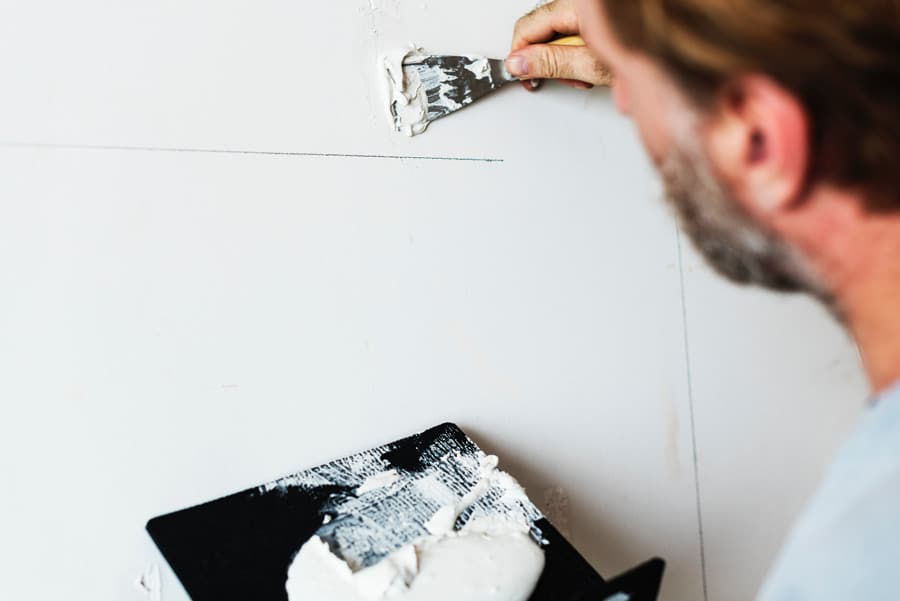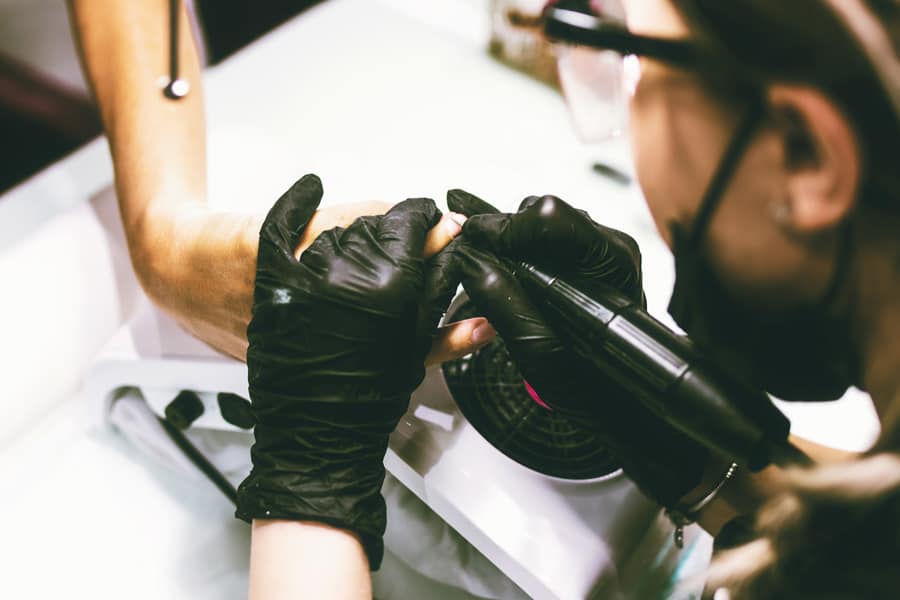Running a salon comes with risk. Things go wrong sometimes. That’s just how it is.
This is why all salon owners need a set of insurance policies.
But what insurances are mandatory for salons? What’s the most cost-effective way to insure a salon? And what type of insurance does a salon owner need?
This can be confusing at first sight. This is why I created this short and simple summary of the insurance you need when starting a hair salon, nail salon, beauty salon, or spa.
Please note that I’m not an insurance agency or legal expert. This article aims to give you a good idea of what you need. To get full details from an expert, I suggest you request a free quote based on your specific salon requirements from Hiscox
At the end of this guide, I also list some official government resources that provide valuable information and guidance on insurance for small business owners.
Let’s get to it.
What Insurance Does a Salon Need?
A typical salon needs General Liability Insurance, Commercial Property Insurance, Professional Liability Insurance, and Workers Compensation Insurance. Some insurance companies offer a Business Owner Policy, a combination of insurance policies needed for business owners, which is a more cost-effective option.
I’ll explain each insurance policy in this article, but let’s first look at an overview of the insurance a beauty salon needs.
| Insurance | Approx. cost* | What it covers |
|---|---|---|
| General Liability Insurance | $720 per year | Protects against claims caused by bodily injury, property damage, and personal injury that arise from your salon business operations. |
| Commercial Property Insurance | $750 per year | Covers costs associated with repairs and loss of income due to damage to building and salon equipment. |
| Professional Liability Insurance | $920 per year | Protects against claims that your professional advice or salon services caused a client financial harm. |
| Workers Compensation Insurance | $450 per year per employee | Covers your employees lost wages and medical treatment in case of injury. Mandatory in almost all states. |
To save money, you can apply for a Business Owner Policy, which combines General Liability Insurance with Commercial Property Insurance.
To learn more about how much salon insurance costs, you can read my salon insurance cost guide here which includes the estimates in the table above. But this will still only give you a rough estimate. You can request a free quote from Hiscox to understand what cost to expect for your specific salon. Hiscox is one of the most popular insurance companies for beauty salons. You immediately get an accurate cost quote when you fill out their online form.
Why do Salon Owners and Beauty Therapists Need Insurance?
Salon owners must insure their salons to protect themselves, their employees, and their customers against liability, accidents, and damage. Many things can go wrong in a salon, and protecting against potential losses is important.
Just imagine one of the following scenarios:
- A customer slips at the shampoo station in your hair salon and breaks an ankle.
- You give professional advice as part of your spa package that causes injury to a client.
- One of your nail salon employees ruins your client’s expensive shoes during a treatment.
- An employee gets injured in your beauty salon.
I’m sure you’ll agree that things like this can easily happen. You need to protect your salon, employees, and clients from the impact of such events.
Do Booth Renters and Hairdressers Renting a Chair Need Insurance?
Booth renters need General Liability, Professional Liability, and Property Insurance as they are liable for professional mistakes, property damage, and bodily injury. If you, for example, are a hairdresser renting a chair, you are functioning as a separate business within the salon and are therefore not covered by the salon’s Insurance.
In many cases, the salon owner will require you to have your own insurance to work in the salon. However, you should ensure you’re covered even if they don’t. You’ll most likely not need worker’s compensation insurance as you don’t have any employees. But it’s a good idea to ask the salon owner about their insurance requirements.
The cost for salon booth renter insurance is typically lower than if you’re a salon owner. You can also save costs by opting for a Business Owner Policy which typically combines General Liability Insurance and Property Insurance.
You can request a free quote from Hiscox to get a cost estimate for your salon booth rental business. They can also give you more details about the insurance policy you need as a booth renter.
1. General Liability Insurance: Protect Your Salon from Third-Party Claims
I don’t mean to upset anyone, but if you’re based in the U.S., you have a business in the most litigious society in the world (source). And if you run a salon business, there are many reasons why you may get sued.
One of your employees slips next to the shampoo station and breaks their ankle. Or maybe you’re a mobile salon, and you drop nail polish on their expensive carpet during one of your client home visits.
For both events, you’d be liable for the cost.
General Liability Insurance would protect you against these types of claims. This is why all salon owners must have liability insurance. However, as a salon owner, you may have better options than General Liability Insurance.
Most insurance companies, at least if they focus on helping small businesses, would offer something called a Business Owner Policy, which also includes General Liability Insurance.
2. Commercial Property Insurance: Secure Your Salon Business Even if You Get Disrupted by Building Repairs or Broken Salon Equipment
You run a hair salon, and your expensive hood dryer breaks down on you. That can be an unexpected expense that completely ruins your holiday plan that month.
Or what if you’re running a tanning salon, and a water pipe breaks, and you get water over your electronic sunbeds? Not only could it get extremely expensive to repair or replace the sun beds, but you’d also have lost all the revenue your sun beds generate until they’ve been replaced.
These are both reasons why you need Commercial Property Insurance. It protects you against costs if your equipment breaks and also for lost revenue during repairs in your salon or while waiting for equipment replacement.
However, similar to the General Liability Insurance, as a salon owner, you may not need Commercial Property Insurance if you’re signed up for a Business Owner Policy as that’s typically covered there.
Let’s look at this policy next.

3. Business Owner Policy: Protect Your Salon Against Liability Claims and Damage to Your Property and Equipment
The Business Owner Policy is a combination of the General Liability Insurance and Commercial Property Insurance. It typically also includes Business Interruption Insurance and other specific insurances depending on the needs of your business.
If you set up your insurance with a provider who has experience working with hairdressers, nail technicians, beauty therapists, or other types of salons, they can adapt it to cover your common needs.
Note that there are still specific claims that a Business Owner Policy does not cover. These are claims for inaccurate client advice and those that arise from the professional salon services you perform. This is why you’ll need Professional Liability Insurance on top.
4. Professional Liability Insurance: Protect Against if Something Goes Wrong When Delivering a Client Service
Let’s say you’re a hairdresser. Let’s say you’ve colored a client’s hair and they get a scalp reaction afterward. Even if the client told you that they aren’t allergic and you conducted the service the exact right way according to the product supplier’s instructions, you could get sued.
Or maybe you’re a massage therapist and a client claims to have even worse back pain after being treated in your salon, this could put you in the same tricky spot.
Let’s face it.
You can make mistakes even if you’re an expert at your service. And if your salon client thinks the mistake financially impacts them, you may be sued. The same applies if the service was provided by a member of your staff.
Professional liability insurance, also called errors and omissions insurance (E&O insurance) or indemnity insurance, protects you against any potential risks you may face when providing salon services to clients.
In some states, certain kinds of salon services require you to have professional liability insurance.

5. Workers Compensation Insurance: Protect Your Salon Staff in the Event of Injuries in the Salon
If you have salon employees, this insurance is mandatory.
Your salon staff is most likely working with hot tools and chemicals, sometimes under less ergonomic circumstances. What if one of your hairdressers burns herself so badly on a styling tool that she needs to be treated in hospital?
A Worker’s Compensation Insurance covers your employees’ lost wages and medical treatment in case of injury. It also protects you from being sued for workplace conditions that result in injury or illness.
This a must-have insurance if you have employees in your salon.
Picking the Best Beauty Salon Insurance Company
There are many insurance companies out there, but I recommend you pick one that specializes in salon insurance.
One of the most popular providers in the U.S. is Hiscox. They help small business owners with the right insurance and have dedicated beauty salon insurance, hairdresser insurance, Nail technician insurance, and spa owner insurance. They’ve been around since 1901 and are the leading specialist insurance company, so they’re a safe option.
Conclusion
Getting good insurance is critical for a nail salon, hair salon, beauty salon, or spa.
When you provide services to other people, you always run the risk that something goes wrong. As a salon owner, you have many worries, but good insurance can at least remove some.
We’ve now covered the salon insurance policies you need: A Business Owner Policy, a Professional Liability Insurance, and a Worker’s Compensation Insurance if you have salon staff.
Many states mandate hairstylist insurance to operate legally, and salons often require both renters and employees to carry their insurance, even if the salon has a comprehensive policy (Source).
I hope you’ve found the article helpful.
I wish you a safe salon business!
Insurance Resources for Salon Business Owners
Here are some official government resources that provide valuable information and guidance on insurance for small business owners.
- U.S. Small Business Administration (SBA) – The SBA provides guidance on insurance types small businesses may need, including workers’ compensation, unemployment, and disability insurance. They also help understand state-specific requirements and find suitable policies through commercial insurance agents. Website: SBA Business Guide on Insurance
- HealthCare.gov provides information on the Small Business Health Care Tax Credit and the SHOP Marketplace, offering insights into health insurance options for small businesses. Website: HealthCare.gov Small Business

